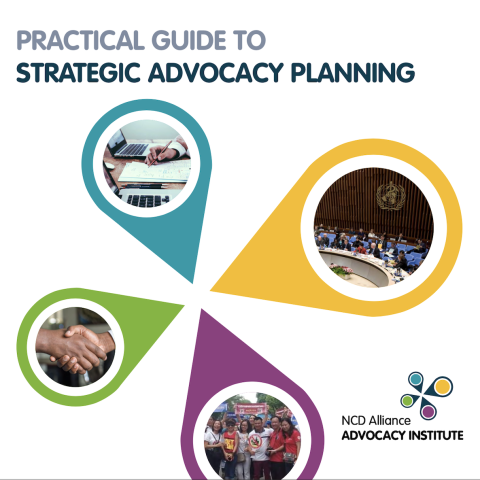This Practical Guide was developed with the aim of supporting NCD Alliance’s goal to strengthen NCD civil society advocacy efforts to drive transformative change at the global, regional, and national levels. The document presents the eight main steps to advocacy planning, with examples, case studies from the NCD Alliance’s network, advocacy tools and other resources.
The new Practical Guide is primarily targeted for NCD alliances and civil society advocates at all levels, from newly formed groups to the very established. Readers are welcome to adapt and modify approaches according to the specific realities of their contexts and their current and future advocacy plans.
The 8 steps of advocacy planning are:
- Step 1 - Advocacy situation analysis
- Step 2 - Select priority issues, goals, objectives
- Step 3 - Political mapping
- Step 4 - Advocacy tactics and messages
- Step 5 - Build support among constituencies
- Step 6 - Create a workplan and budget
- Step 7 - Roll out of the advocacy plan
- Step 8 - Monitor and evaluate
The 8 steps of advocacy planning presented in the brief are accompanied by case studies from our global network of member alliances, such as from India, Vietnam, Mexico, the Philippines, the Caribbean and others, in planning and conducting strategic advocacy. These cases present lessons learned and recommendations that other NCD civil society advocates can use to strengthen their own advocacy campaigns to pursue NCD prevention and control policy changes. At the end of the guide, advocates will be able to find a series of practical tools that will help them to identify their advocacy priorities, conduct a political mapping, and even develop an advocacy workplan.




